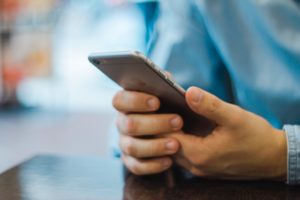Maryland is now the second state to offer support for mobile IDs through the Apple Wallet. Residents with a Maryland driver’s license or a state ID can tap the “plus” button in the Wallet app to add their document to the Wallet, at which point they will be prompted to take a photo of their physical ID and a selfie to complete the process.

At the moment, the digital documents can only be presented as proof of identity at a pair of Maryland airports, and even then, the service is restricted to those who have registered for the Transportation Security Administration’s TSA PreCheck program. The TSA cited the lack of credential scanners for the limited service, but stressed that it is eventually hoping to extend the mobile ID utility to other passengers at the Baltimore-Washington International Marshall and Reagan National airports.
The story is similar outside of the travel sector. The Maryland Motor Vehicle Administration (MVA) indicated that the mobile IDs will be a valid form of identity in interactions with the police, and at venues like government offices and liquor stores at some point in the future.
The Maryland mobile IDs are compatible with the iPhone 8, the Apple Watch Series 4, and any newer devices in both product lines. Arizona became the first state to issue mobile IDs for the Apple Wallet in March, though the utility was similarly restricted to TSA checkpoints at the Sky Harbor International Airport in Phoenix.
Apple first announced that it would be bringing mobile IDs to the Apple Wallet last June, and is currently in talks to expand the service to several other states. The Washington, DC Council has also passed a bill that clears the way for some form of digital identity. Maryland itself first started piloting digital driver’s licenses in 2017, ahead of more formal legislation in 2019.
For the moment, digital ID holders are advised to carry their physical IDs for situations in which the mobile IDs are not yet accepted. The Apple Wallet service can be secured with device biometrics, and allows users to restrict what information gets shared during an interaction.
Sources: The Washington Post and State Scoop

Follow Us